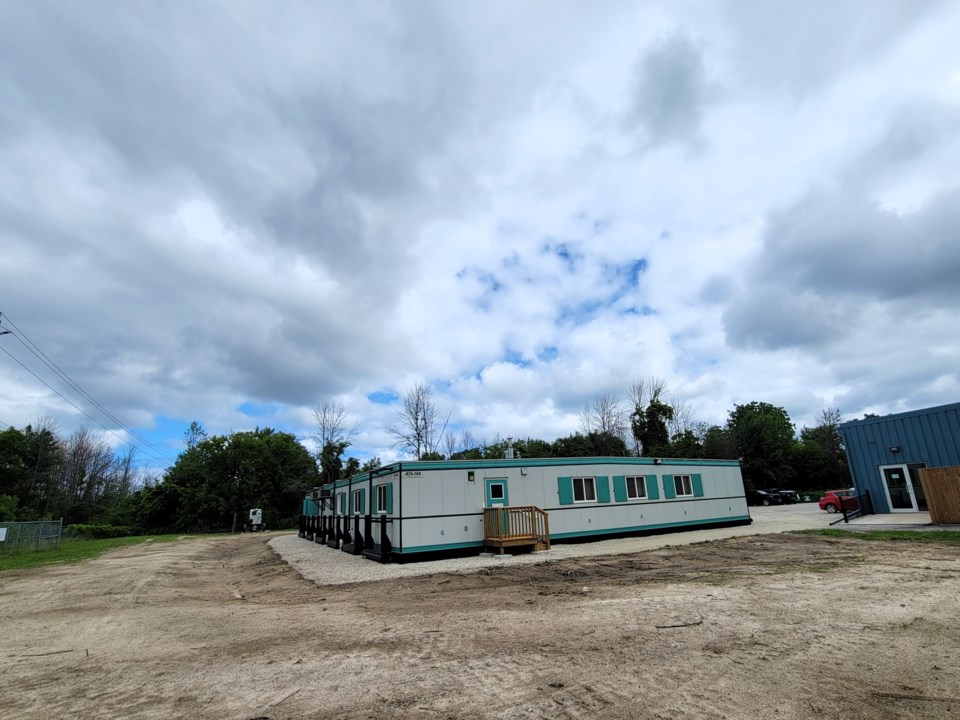Municipalities kept the topic of affordable housing front-and-centre at this week's Association of Municipalities of Ontario conference that wrapped up in Ottawa on Aug. 21.
While many municipalities across Ontario are now working to deal with housing and homelessness, the County of Simcoe is a trailblazer by comparison as they just finished up their first 10-year affordable housing strategy which was started in 2014.
As of Dec. 31, 2023, 3,250 new affordable homes had been created across the region since 2014 that exceeded the county’s targets for that time frame, with more in the process of being built.
On the homelessness front, the county released its 10-point homelessness prevention strategy in 2023, and work on that is fully underway.
“We’re not focusing on more shelters. We want to transition people through the system,” explained Clarke.
One such example of this part of the plan in action is the new modular transitional housing program for seniors that will be running at 199 Campbell St. in Collingwood.
“They’re not shelters. They’re housing. We’re reaching out to people, getting them off the streets and back into housing,” he said.
At a panel session on affordable housing innovation on Aug. 20, most of the examples given were Simcoe County projects done in collaboration with Raising the Roof, as presented by the non-profit’s housing development director Adrian Dingle.
Dingle talked about the organization’s collaboration with Minesing-based organization Community Builders and Barrie’s Redwood Park Communities to build new affordable housing in Barrie. The organization is responsible for the renovation of a Barrie hotel that is now Lucy’s Place, transitional housing for unhoused individuals.
The presentation also included a project at 25 Peter St. N. in Orillia, where 40 housing units are planned to be built atop the Canada Post building.
“We are actively looking for new clients that might benefit from our services and new communities that might benefit,” said Dingle.
On the final day of the conference during a talk on housing in Ontario moderated by TVO journalist Steve Paikin, there was general consensus that it’s necessary to have housing for middle income earners in every municipality, and there needs to be more of a focus on building affordable housing for families.
“We have a lot of one-bedroom apartments in this province, but what we’re lacking is those larger family-sized units,” said Mike Moffatt, founding director of the PLACE Centre who sat on the panel.
Moffatt said that 40 years ago, lower income earners may choose to live outside of city centres, but within commuting distance, but that now that’s not possible as every town is expensive unless you go much farther north.
“You’d have to move to North Bay. The challenge is, we can’t have all the patients living in Toronto and all the nurses living in North Bay. That just doesn’t work,” he said.
Lisa Helps, executive lead of BC Builds, noted that for the most part, homes have been built in the same way for the past 100 years, and innovation on that front – specifically factory-manufactured housing – could help solve the crisis.
Moffatt said that in the auto industry, you can buy a vehicle with the same specs in any province in Canada, so municipal, provincial and federal governments should be exploring a way to take that model and translate it into housing by addressing the differences in building regulations and rules between towns and provinces.
“We have an approval process system that is out of sync with getting this done,” he said. “If you want to build quickly, panelization and modular is the way to go.”
Jag Sharma, deputy city manager of development with the City of Toronto, gave attendees words of warning when it comes to thinking small on the issue.
“This is an incredibly challenging time, but an incredibly important time for us to take as many actions as possible because I think history is teaching us that indecision is costing us more,” said Sharma.
“It has to be possible for us to come together to build these homes, because otherwise our communities and our country are going to crumble,” said Helps.
“I don’t think failure is an option,” said Moffatt.



